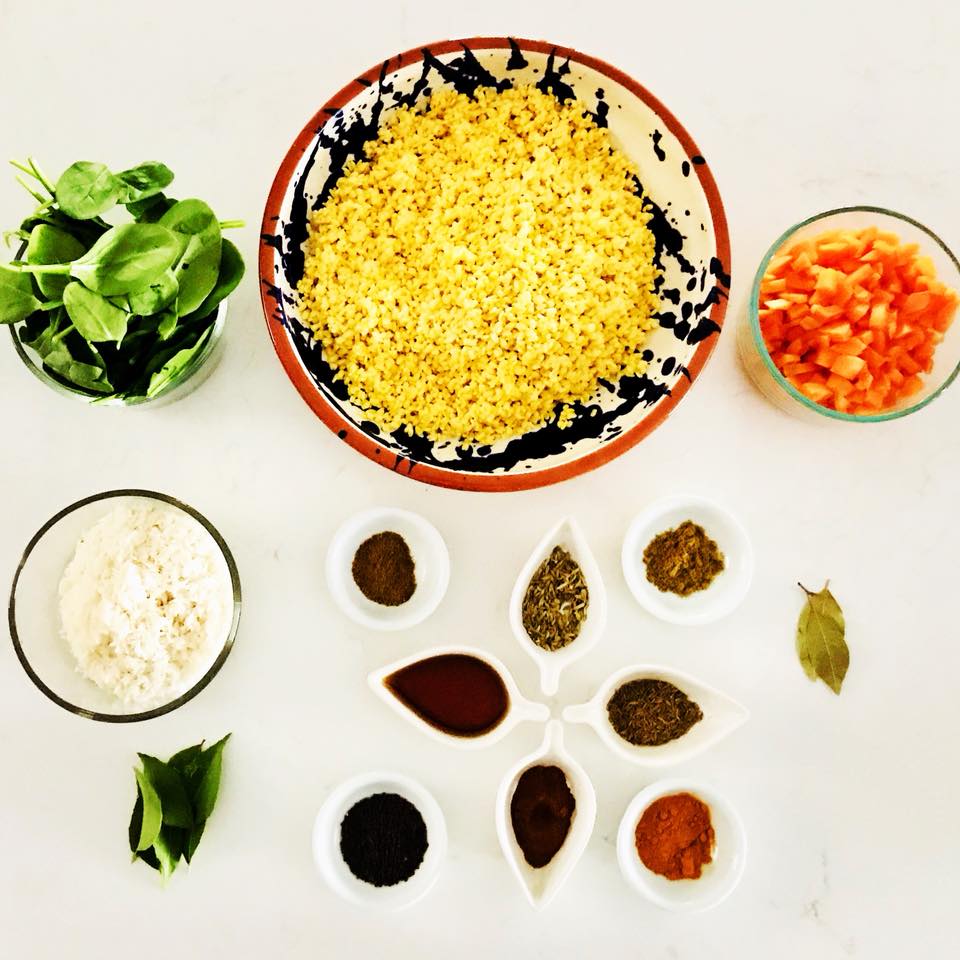Kitchari ( pronounced kich-uh-ree) is a staple of Indian cuisine and Ayurvedic medicine. It is considered a cleansing and detoxifying food. It’s traditionally prepared with yellow mung dal, basmati rice, seasonal vegetables, ghee or oil and spices.

According to Ayurveda, we are all composed of three doshas: vata (air and ether), pitta( fire and water) and kapha ( earth and water). Kitchari balances the three doshas.
It really is the perfect one-pot meal. It’s easy-to-digest and provides a complete protein ( the 10 essential amino acids our bodies cannot make and we must get from our food).

To learn more about your dosha type, you can take a test at The Chopra Center
To make the perfect kitchari consider the following guidelines published by Kripalu School of Ayurveda:
For Vata:
- Use twice the amount of oil.
- Add a pinch of cayenne pepper while cooking.
- Add about ½ inch of chopped, fresh ginger to the oil when cooking the spices.
- Use quinoa instead of rice to increase the protein content.
- Use double the amount of rice.
- Best veggies for a vata variation are carrots, zucchini, peas, sweet potatoes, and asparagus.
For Pitta:
- Use half the amount of mustard seeds and black pepper, or omit mustard seeds altogether.
- Best veggies for a pitta variation are leafy greens, broccoli, cauliflower, asparagus, zucchini, and carrots.
Kapha
- Use leafy greens, broccoli, cauliflower, asparagus, zucchini, and carrots.
- Add about ½ inch of chopped, fresh ginger to the oil when cooking the spices.
This is my favorite recipe for balancing vata-pitta during the winter time. I hope you enjoy it!

- 1 cup yellow mung dal beans
- 1/2 cup basmati rice
- 2 Tbsp sesame oil
- 1 tsp mustard seeds
- 1 tsp fennel seeds
- 1 tsp cumin seeds
- 4-6 curry leaves (optional)
- 1 tsp ground cumin
- 1 tsp ground coriander
- 1 tsp ground turmeric
- 1/2 tsp ground cinnamon
- 1 pinch asafoetida (hing)
- 4 cups of seasonal vegetables: 2 cups of green veggies ( spinach, kale, celery) + 2 cups of orange veggies ( carrots, sweet potato, squash)
- 2 cloves
- 2 cardamon pods
- salt and pepper to taste
- Handful of fresh cilantro leaves (optional)
- Soak the mung dal beans in water for 4-8 hours (this helps with digestion). Rinse and strain until the water runs clear, about five times.
- Heat the sesame oil in a large pot over medium to high heat.
- Add all the seeds and toast until the mustard seeds pop.
- Add the grounded spices and a asafoetida.
- Stir in the mung dal and rice.
- Add 6 cups of water, cloves, cardamon pods and vegetables
- Bring to a boil and reduce to a simmer.
- Cook at least for one hour, until the beans and rice are soft and the kitchari has a porridge-like consistency.
- Serve warm with fresh cilantro on top, if desired.





